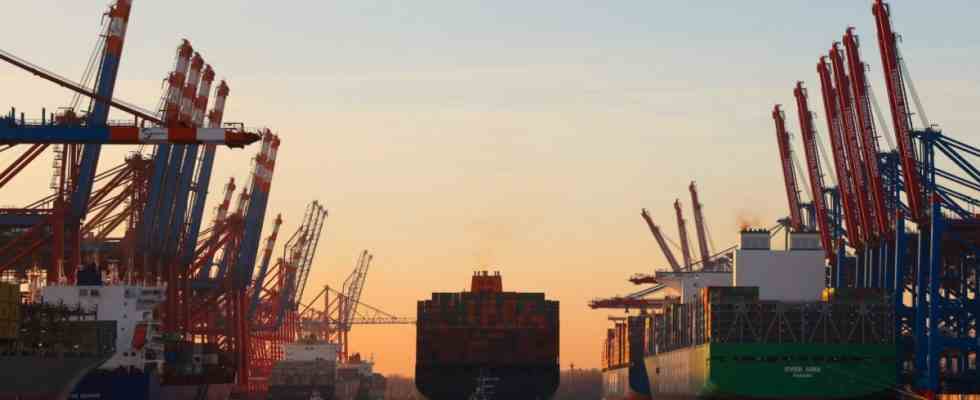The Port of Hamburg has been closed to large ships by the port administration because of the announced warning strike by the Verdi union. Since Wednesday morning, ships requiring pilotage have been unable to enter or leave the port until further notice, the port administration announced to the HPA. According to the Federal Ministry of Economics, Hamburg is the country’s largest port with a 39.6 percent share of seaborne cargo handling in Germany.
All ships with a length of 90 meters or a width of 13 meters and more are affected, said a spokeswoman for the HPA. The blocking is necessary because the so-called pilot transfer boats are to be on strike and the pilots can no longer reach the large ships. According to the current status, around 18 ships bound for Hamburg are affected. The number of ships leaving the port affected is much more difficult to quantify because they only have to report two to four hours before departure, the spokeswoman said. For emergencies, there is an emergency service agreement with Verdi.
According to the HPA, there will be severe restrictions in the area of locks, movable bridges, barrages and the old Elbe tunnel in St. Pauli. Strike measures are to be expected until Friday morning, which would limit the regular operation of the systems or lead to full closures. Flood protection and emergency operation on the major bridges are ensured.
The Verdi trade union called on all Hamburg employees and trainees in the public sector to go on a all-day warning strike on Thursday. In addition to the HPA employees, several thousand employees from the hospitals, daycare centers, city cleaning and the State Opera will take to the streets together.
With the warning strike, the workers want to give more weight to their demands before the next round of negotiations from March 27th to 29th in Potsdam. The union is demanding 10.5 percent more wages for the approximately 2.5 million employees in the federal and local public services nationwide, but at least 500 euros more per month. The employer side has so far offered five percent more money in two steps and one-off payments totaling 2500 euros.

